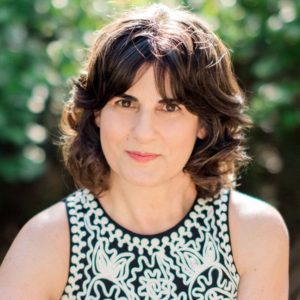Journeys to Humanism: Becoming an Arab Humanist

Journeys to Humanism, theHumanist.com’s regular series, features real stories from humanists in our community. From heartwarming narratives of growth, to more difficult journeys, our readers open up about their experiences coming to humanism.
Nohad Nassif
Fairfax, Virginia
The following is an excerpt from Nohad Nassif’s book, Arab Humanist.
We had just lost our grandma to old age, and the mood of the house was somewhat somber. While fasting during the month of Ramadan to support my dad while he fasted, I decided for the first time in my life to pray five times a day–the Islamic way. Even though I had never seen my dad pray, I still knew he would love to see me be devout that way.
With the help of my younger brother, I learned the prayer steps: a specific kind of washing, completely covering oneself, except the face and hands, then reciting the Quranic verses in a series of positions while facing in the direction of the Kaaba in Mecca. Everything I did to please my dad and God came out of sheer ignorance. I had no idea about what the Kaaba was and where Mecca was. I had never read the Quran or known anyone who had read it. A Muslim is simply born and, therefore, a believer in God and Prophet Muhammad.
Every time I prayed, like an angel wearing white from head to toe, I suppressed all of my free-thinking tendencies and age-appropriate feelings. I assured myself I would only wear the veil when I prayed at home but never when I went out. To me, the Hijab was the most unattractive thing ever, especially for women who didn’t have a gorgeous face to make up for it. Not fair. My brother would never be troubled with such a loss of identity or attractiveness in order to please God.
Despite it all, I still tried to welcome the idea of a higher being’s existence. It was paradoxically comforting and overwhelming at the same time: comforting because I felt “pure” making God happy, and overwhelming because I felt like I was being watched by God every moment. There was a fear of making mistakes, especially since “He’s all-powerful and all-knowing.”
My Christian mom didn’t mind my sudden Islamic conviction. On the contrary, she was even supportive. She would spend her whole day during the month of Ramadan preparing for the iftar, the meal we ate in the evening after fasting all day. She always loved God. “The One and Only God is for Muslims, Christians, and all people,” she would say.
My proud dad gave us Imam Ali’s book to read, and my brother was taken with it immediately. Soon, I started reading it too. It was a marvelous book, I thought, full of creative words and wisdom by Imam Ali. Then, I got to a section on “his courage” in the battles of Prophet Muhammad’s time. The descriptive images of the battles were unbelievably gruesome and violent, showing how Imam Ali and his troops fought. They killed the men and captured the women and children. Many of the women became the soldiers’ sex slaves. I was shaken to my core. All of a sudden, the God I respected and feared didn’t make sense to me anymore. God was destroyed in my world.
I immediately turned to my brother. “Are you telling me this is the religion I’m praying for? I am done and out.” The stories of Prophet Muhammad and Imam Ali’s battles sounded worse than the Lebanese Civil War around us, which I saw devastate the people and country.
Four years earlier, in 1976, my siblings and I went to visit Grandma in the refugee camp of Tel al-Zaatar. The camp came under siege for seven months, and we were trapped. My dad had built a five-story apartment building in this poor community and worked double shifts for years to be able to pay it off. By the end of the siege, my dad’s building was razed to the ground. Four beloved relatives, two dear friends, and many peaceful neighbors lost their lives. They were among thousands of people killed or injured in the camp. The stories of sieges, massacres, and battles would repeat themselves over and over again and affect all the political and religious parties. I was grateful my family didn’t plunge into the filth of war. We only waited and hoped for a united people and country.
I was only three weeks into fasting and praying when my religious phase ended. Even hearing the azaan, the call to prayer, from the local mosque started to annoy me. Why should I, a non-believer, be woken up and be called for prayer at two or three in the morning? I wished people kept their religion to themselves inside their own homes and places of worship. My fairly secular parents didn’t even notice my change of heart concerning religion–for them, devout or not, I was loved and accepted.
We all have our own stories of how we came to be humanists, and we want to hear yours! Fill out the form here to be featured in this series.
